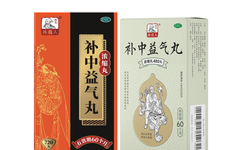
1
Manifestations of Qi Deficiency Constitution
1. Speech is low and timid, with shallow breath.
2. Particularly sensitive to cold in winter and heat in summer. Prone to cold in winter and heatstroke in summer.
3. Reduced appetite, pale complexion, and light-colored lips.
4. Muscles are soft and lack strength.
5. Dizziness, low blood pressure, and generally low baseline blood pressure.
6. Mental fatigue, laziness, and lethargy.
2
Causes of Qi Deficiency Constitution
1. Congenital endowment.
2. Severe illness or prolonged illness leading to significant depletion of vital energy, resulting in a Qi deficiency state.
3. Long-term excessive mental exertion.
4. Long-term physical labor or being a professional athlete can deplete Qi over the years. Such individuals may appear healthy in middle age but are actually Qi deficient. Physical overexertion can harm Qi.
5. Dieting.
3
Diseases Easily Affected by Qi Deficiency:
1. Prone to obesity, often due to excessive phlegm and dampness.
2. Qi deficiency cannot lift, leading to organ prolapse.
3. Low blood pressure.
4. Allergic rhinitis.
5. Chronic bronchitis.
6. Spontaneous sweating, even without activity.
7. Habitual constipation.
8. Women with Qi deficiency are prone to pigmentation, characterized by large areas and light color.
9. Women with Qi deficiency are more likely to develop chronic inflammation, such as chronic pelvic inflammatory disease.
10. Irregular menstruation, with prolonged cycles.
4
Pharmaceutical Health Care for Qi Deficiency Individuals
Herbs that can tonify Qi include: Ren Shen (Ginseng), Xi Yang Shen (American Ginseng), Dang Shen (Codonopsis), Tai Zi Shen (Pseudostellaria), Huang Qi (Astragalus), Bai Zhu (Atractylodes), Shan Yao (Chinese Yam), Bai Bian Dou (Lima Bean), Gan Cao (Licorice), Hong Zao (Red Dates), Ci Wu Jia (Siberian Ginseng), Jiao Gu Lan (Gynostemma), Hong Jing Tian (Rhodiola), Fu Ling (Poria), Yi Yi Ren (Job’s Tears), Yi Tang (Maltose), and Feng Mi (Honey).
These herbs can be used as ingredients to prepare medicinal dishes or combined to make herbal teas: For fatigue, use 3 grams of Xi Yang Shen or Ren Shen steeped in boiling water as tea; for recurrent colds and weak immunity, use 9 grams of Huang Qi, 6 grams of Fang Feng (Siler), and 3 grams of Gan Cao steeped in boiling water as tea; for frequent palpitations and anxiety, use 6 grams of Tai Zi Shen, 6 grams of Suan Zao Ren (Sour Jujube Seed), and 3 grams of Gan Cao steeped in boiling water as tea; for shortness of breath and palpitations that worsen after sweating, use 3 grams of Ren Shen, 3 grams of Wu Wei Zi (Schisandra), and 6 grams of Mai Dong (Ophiopogon) steeped in boiling water daily; for prolonged wheezing and difficulty breathing, use 3 grams each of Ge Jie (Gecko) powder and Ren Shen powder, taken twice daily.
Additionally, some traditional classic formulas have special efficacy for Qi deficiency-related diseases. For example, Bu Zhong Yi Qi Wan (Tonify the Middle and Augment the Qi Pill) has the effect of lifting Yang and can be used for organ prolapse and eyelid drooping due to Qi deficiency; for fatigue, reduced appetite, and loose stools, one can take Shen Ling Bai Zhu Wan (Ginseng and Poria Pill) or Ren Shen Jian Pi Wan (Ginseng to Strengthen the Spleen Pill) to tonify the spleen and Qi; for kidney Qi deficiency, lower back pain, impotence, and edema, Jin Gui Shen Qi Wan (Golden Cabinet Kidney Qi Pill) can be used to tonify Qi and promote urination; for less obvious lower limb edema, Gui Fu Di Huang Wan (Cinnamon and Rehmannia Pill) can be used; for prolonged wheezing and difficulty breathing, Qi Wei Du Qi Wan (Seven Flavor Decoction to Regulate Qi) is the first choice.
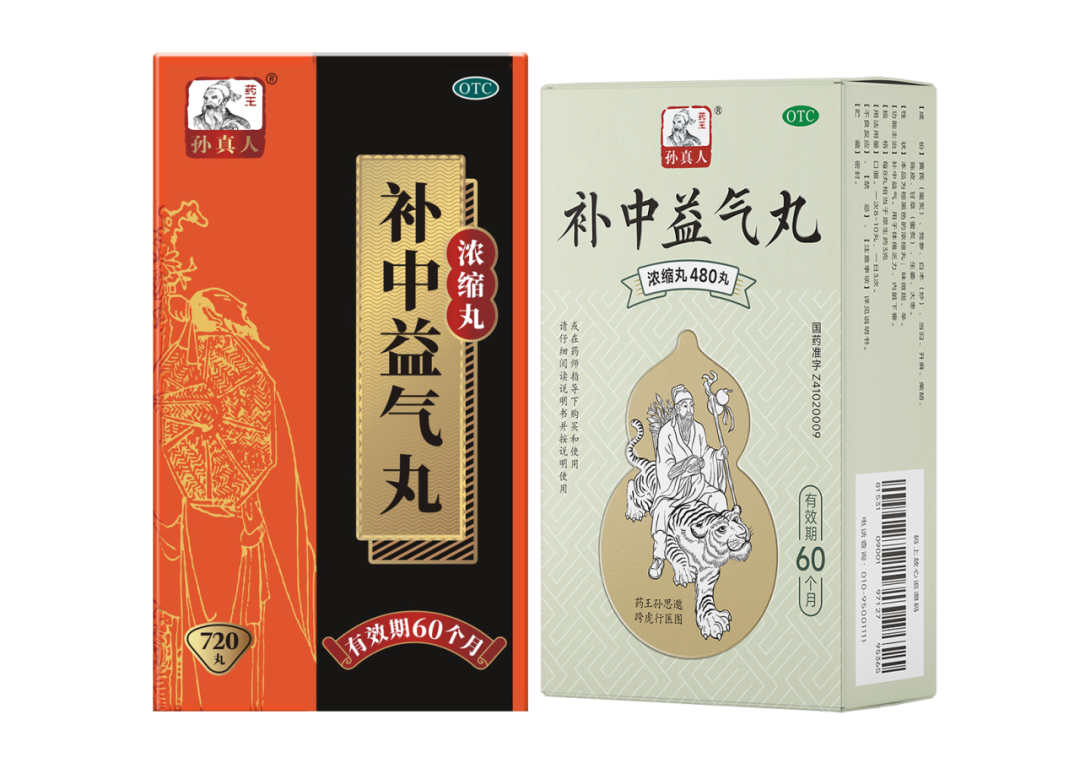
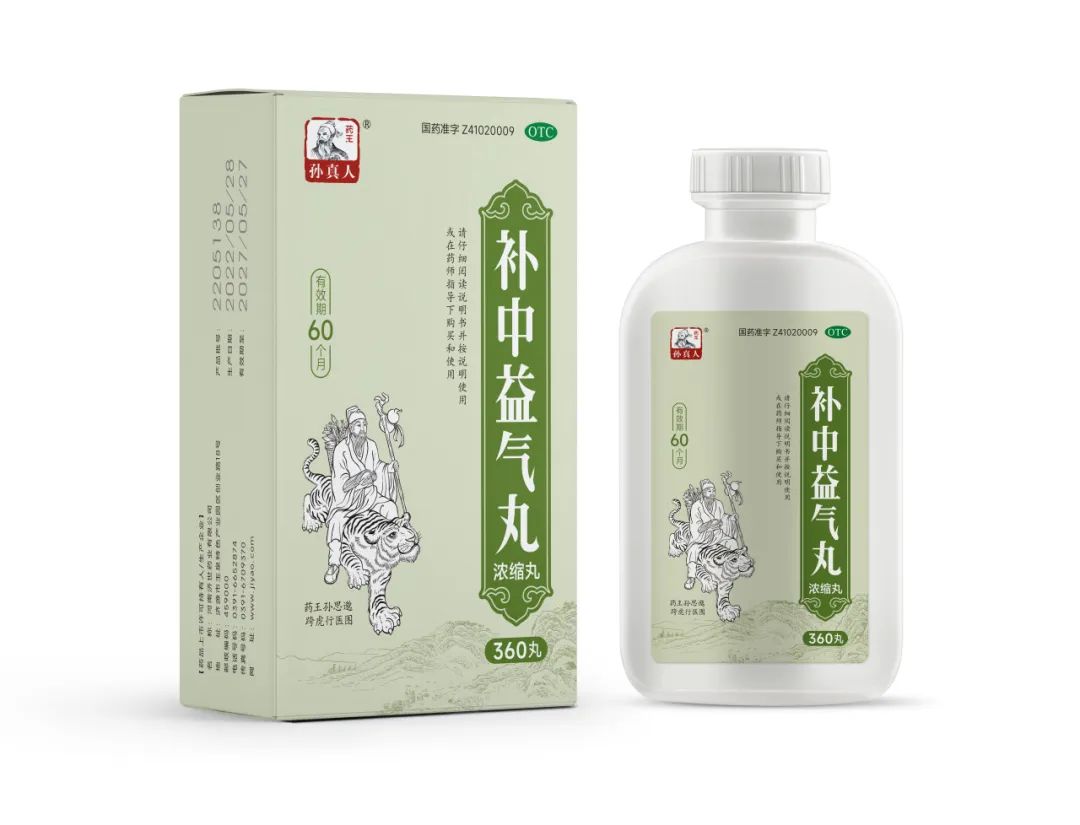
Bu Zhong Yi Qi Wan, a traditional Chinese medicine formula, is derived from “Treatise on the Spleen and Stomach.” It is indicated for symptoms such as reduced appetite, abdominal distension, fatigue, shortness of breath, sweating, headache, chills, chronic diarrhea, prolapse of the rectum, and uterine prolapse due to spleen and stomach deficiency.
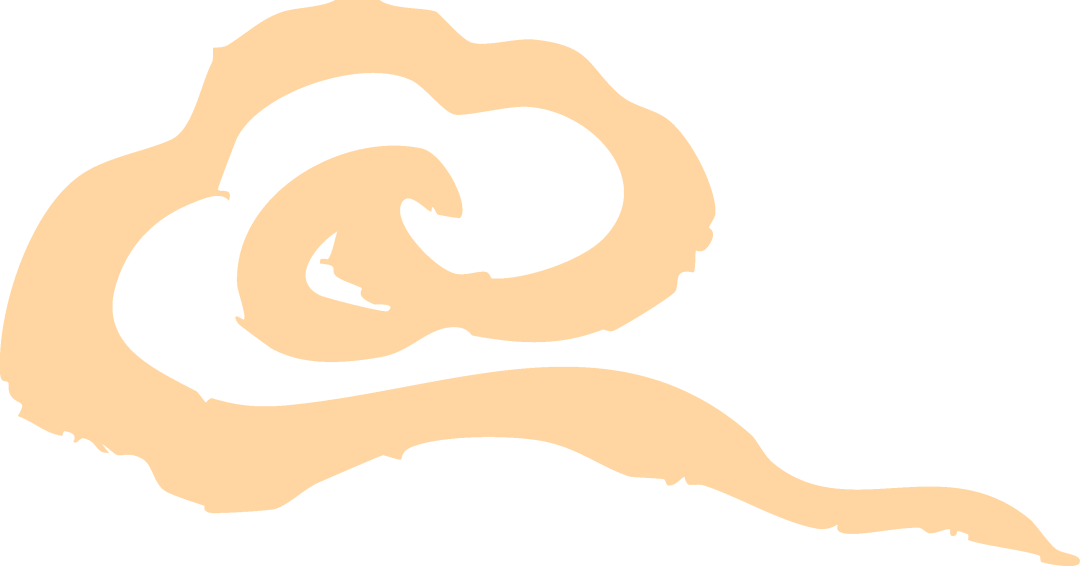
5
Dietary Health Preservation for Qi Deficiency Individuals
Foods that can tonify Qi include: japonica rice, glutinous rice, wheat, barley, millet, Job’s tears, lentils, cabbage, lotus root, sweet potatoes, pumpkin, black fungus, mushrooms, apples, peaches, lotus seeds, gorgon fruit, red dates, chestnuts, walnuts, pork, poultry, crucian carp, milk, eggs, and brown sugar. It is advisable to cook these foods for a long time to ensure they are well-cooked to protect the Qi of the spleen and stomach.
Individuals with Qi deficiency should avoid excessive consumption of raw, cold, bitter, spicy, or overly rich and hard-to-digest foods to prevent the phenomenon of “deficiency not receiving nourishment.”
Recommended Medicinal Dishes:
1. Ginseng and Poria Congee
Ingredients: 10 grams each of Ren Shen and Bai Fu Ling (White Poria), 100 grams of japonica rice, appropriate amounts of ginger, salt, scallions, bamboo shoots, monosodium glutamate, chicken broth, and cooking wine.
Preparation: Decoction of Ren Shen, Bai Fu Ling, and ginger to extract the juice; add the japonica rice to the medicinal juice to cook congee, then add scallions, bamboo shoots, chicken broth, and cooking wine. Season with a little salt and monosodium glutamate before serving on an empty stomach.
Efficacy: Tonifies Qi and nourishes the lungs.
2. Longan and Red Date Paste
Ingredients: 300 grams of longan flesh, 250 grams each of honey and red dates, 50 grams each of barley and wheat sprouts, and a small amount of ginger juice.
Preparation: Wash and dry the barley and wheat sprouts, then grind into powder; wash and pit the longan and red dates, boil with water until 60% cooked, then add ginger juice, honey, barley, and wheat sprout powder, stir well, simmer briefly, and mash into a paste. Take 15 grams daily.
Efficacy: Strengthens the spleen, benefits the stomach, tonifies Qi, and nourishes the essence.
3. Yam and Lotus Seed Stewed Pork Stomach
Ingredients: 600 grams of yam, half a pig’s stomach, 75 grams of lotus seeds (pitted), 4 shiitake mushrooms, appropriate amounts of goji berries, cooking wine, salt, pepper, and broth.
Preparation: Wash and cut the yam into pieces; wash the pig’s stomach and blanch in boiling water; in a pot, add appropriate water, pig’s stomach, cooking wine, salt, and pepper, boil, then simmer for 40 minutes until tender. Remove, soak in cold water, and cut into strips; soak the shiitake mushrooms, remove the stems, cut in half, and add to the pot with yam pieces, lotus seeds, and goji berries, cooking for 20 minutes.
Efficacy: Tonifies Qi and strengthens the spleen.
4. Ginseng and Astragalus Duck
Ingredients: 1 female duck, 30 grams each of Dang Shen and Huang Qi, 15 grams each of Bai Zhu, ginger, and scallions, and 10 red dates.
Preparation: Clean the duck, remove excess fat, blanch in boiling water for 2 minutes, then set aside; wash Dang Shen, Huang Qi, and Bai Zhu, place in a cloth bag, stuff the duck with red dates, ginger, and scallions. In a clay pot, add 1000 ml of water, bring to a boil, add the cloth bag and duck, then simmer on low heat for 2 hours.
Efficacy: Tonifies Qi and nourishes the lungs.
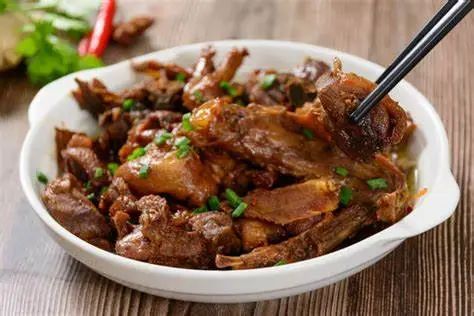
6
Mental Health Preservation for Qi Deficiency Individuals
Individuals with Qi deficiency often have introverted personalities, unstable emotions, are timid, and dislike taking risks. Extreme emotions can lead to Qi disorder and deficiency, so those with Qi deficiency should maintain a good mood and a peaceful mindset.
The lungs govern the Qi of the body; excessive sadness can deplete Qi, while excessive fear can harm the kidneys, leading to kidney Qi deficiency, which can result in severe symptoms such as incontinence and nocturnal emissions. Therefore, in daily life, one should cultivate an open and optimistic attitude, avoid excessive mental strain, and maintain a stable and peaceful mindset.
7
Exercise Health Preservation for Qi Deficiency Individuals
Exercise helps Qi and blood circulate throughout the body, nourishing all parts and enhancing energy, which is beneficial for Qi generation.
Individuals with Qi deficiency have lower physical capacity, so exercise should be moderate and gradually increased. Excessive exercise can lead to fatigue, sweating, and even wheezing and dizziness. Gentle exercises such as jogging, walking, Tai Chi, and Qigong are suitable for those with Qi deficiency, as these traditional forms of exercise can strengthen kidney Qi and bones, gradually improving physical condition.
During exercise, low-intensity and high-frequency methods should be adopted, with attention to exercise duration, avoiding excessive length, achieving “exertion without fatigue,” and focusing on flexibility training for the limbs, such as stretching and leg presses, while paying attention to deep and even breathing, avoiding strenuous efforts and prolonged breath-holding actions.



